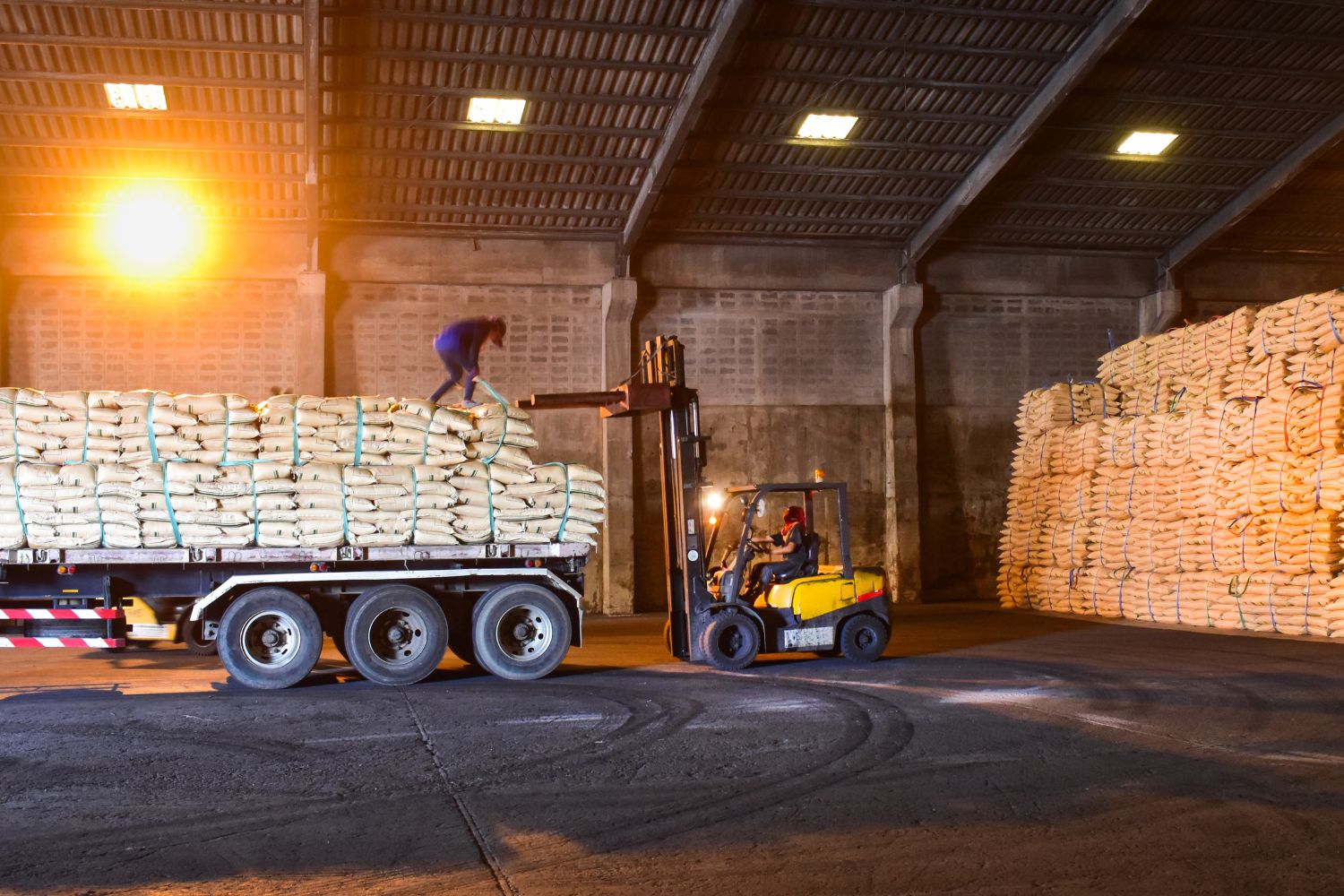Choose the Right Freight Service for Heavy Equipment Transportation
When searching for heavy equipment transportation, it’s critical to choose the right freight shipping option to ensure your commodities are protected and hauled safely. Heavy-material cargo can become damaged by weather elements, or you could pay more than necessary using the wrong equipment transport service.
Below is a quick guide to heavy equipment shipping to ensure your business maintains a positive B2B reputation and that you invest in a freight service that supports your bottom line.
Which Equipment Transport Service is Best for Heavy Cargo?

If you’re unsure how to ship heavy equipment, the first step is to understand each cargo transport option. There are multiple types of trucking transport services available, including flatbeds, dry vans, tankers, and stepdecks. For example, box trucks have an enclosed cargo space, while flatbeds are completely open.
Additionally, not all equipment transporters have the capacity to ship heavier loads. That’s why it’s crucial to find heavy equipment transport companies specializing in heavy freight shipping to ensure your common goods reach their destination safely.
As with any equipment transport service, there are certain conditions you should be mindful of when shipping heavy cargo:
- Weight Limits/Product Measurements: Larger and heavier cargo may not meet the maximum towing and payload capacity for specific shipping options.
- Packaging: Temperature-controlled packaging, like corrosive materials and frozen food, requires special handling that not every transport service offers.
- Fragility: Perishable foods and fragile products that require refrigeration aren’t meant for certain transports, like flatbeds, that are open to the air and elements.
- Physical Ability: Time-sensitive cargo that can’t physically withstand long-distance transport should be considered to prevent damage and spoiled products.
- Insurance: Freight insurance providers have various policies for cargo loss, damages, and unexpected events. Ensure your freight is protected with the transport service you choose.
But if you’re looking for the best option for shipping heavy cargo, here’s why you should consider flatbed transportation.
Why Flatbed Transportation is Best for Heavy Equipment Shipping

The best equipment transport service for heavy cargo is flatbed transportation. In addition to being conveniently flat, it’s designed for heavy equipment shipping. Flatbed transportation doesn’t have a “box” surrounding the freight that 16-wheeler trucks typically use. This heavy equipment hauler has wooden decks supported by a solid aluminum frame with a capacity of 48,000 pounds.
Flatbed transportation is ideal for heavy equipment transportation for goods, such as:
- Building materials
- Ceramics
- Concrete
- Fabricated steel and metal products
- Lumber
- Machine parts
- Shipping containers
Now that you know the different types of heavy cargo shipping, let’s learn about how freight transportation costs are calculated.
The Cost of Heavy Equipment Transportation
If you’re looking for cheap cargo shipping, average transportation costs will vary, especially for heavy loads. However, when submitting cargo transport quote requests, you must understand the information necessary to ensure you’re getting a fair rate.
The following factors impact the costs of shipping heavier cargo:
Density
Density measures freight classification. Also known as NMFC codes, it determines how difficult your goods are to transport and the liability involved in shipping them. The higher the density, the higher the costs.
Here’s how to calculate your freight’s density in pounds per cubic foot:
- Measure your cargo’s weight in total pounds.
- Measure your cargo’s dimensions (L x W x H) in inches. Start with the furthest points, including pallets and packaging.
- Multiply the three dimensions by three each and add them all together to convert them into total cubic inches.
- Divide the total cubic inches by 1,728 to convert your measurements into total cubic feet.
- Divide your cargo’s pounds by cubic feet to calculate your freight’s total pounds per cubic foot.
Your total cubic feet can be rounded to the fullest cubic feet if you find your measurements have fractions.
Cargo Importance
Hazmat commodities and perishable goods, such as chemicals, gases, and beverages, can increase freight shipping costs due to their time-sensitivity requirements and liability for expedited transport.
Freight Brokers
A freight broker is a liaison between the shippers and carriers to ensure seamless transportation on your behalf. Freight damage can cause substantial costs, and freight brokers oversee the entire transport process to ensure it goes smoothly with the shipper and carrier. It helps prevent unnecessary out-of-pocket expenses.
Freight Insurance: Carrier vs. Third-Party Providers
Depending on your insurance provider and policy, the costs to protect your freight will vary. Carrier insurance is through logistics providers like UPS and FedEx. Third-party insurance is through third parties, like eBay’s Shipsurance.
Freight insurance rates are typically calculated by a percentage of the declared value of your goods being shipped. Percentage costs will range based on your insurance policy and provider.
Shipping Destination
Cargo routes are priced by equipment hauling rates per mile. The further your destination is, the more it costs to ship due to fuel costs, driver hours, and carrier wear and tear.
Your Heavy Equipment Transportation Needs are Our Priority
At Lone Star Logistics, we’re not just a heavy equipment transport company. We offer all forms of common goods transportation, including wide loads, heavy loads, escorts, and custom routes to accommodate your commodities.
We have technology to track and trace freight and provide timely route updates so you know where your product is.
Have questions? Fill out a request form or contact Lone Star’s 24/7 bilingual support team to answer any questions you have.
Call 833-562-3722 or email info@lone-starlogistics.com today!

